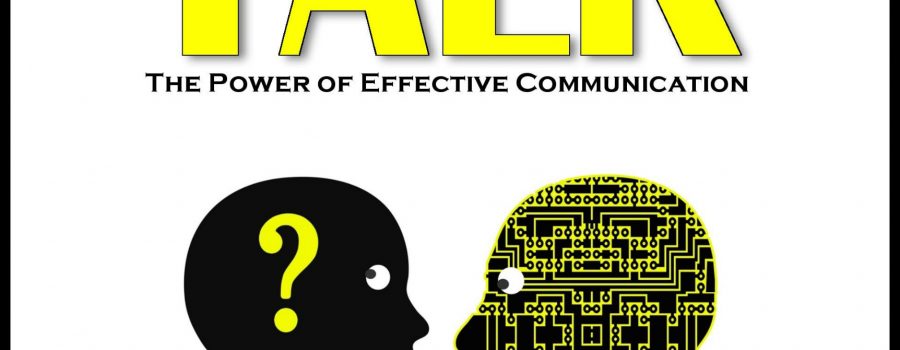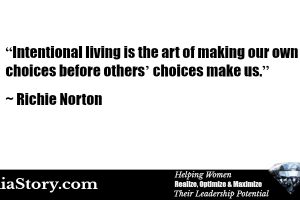“Communication – the human connection – is the key to personal and career success.” ~Paul Meyer
I was nearly 20 years old before I realized I liked people. I never considered myself to be an “introvert” although most people would have. I simply didn’t talk to people. Ask me a question, and you would get a monosyllabic response that discouraged any further dialogue. It’s not that I didn’t want to talk or communicate with people – I simply didn’t know how.
I grew up very isolated, living on a farm in the middle of the woods. I was homeschooled. We didn’t attend church regularly, and my social contact growing up was mainly limited to field trips with other homeschoolers. In the early 1980’s in Alabama, opportunities for homeschooled children to participate in extra-curricular activities were limited, and my parents didn’t pursue most of them.
I was also sexually abused by my father from age 12 – 19. Growing up with feelings of shame, guilt, hurt, and unworthiness only compounded my natural tendency to be withdrawn, even after I left home at 19. I share more about my story in some of my books, Ria’s Story: From Ashes to Beauty and Beyond Bound and Broken: A Journey of Healing and Resilience.
Leaving home without a job, a car, or even a high school diploma, I got a crash course on the need for communication in “normal” society.
At 19, I had a great education, ability to think critically, reasoning skills, proactive attitude, and willingness to work hard. What I didn’t have was the critical ability to connect with other people and communicate effectively.
Since I didn’t have a GED or a high school diploma, finding a way to make a living wasn’t going to be easy, but I was determined to start making money and earning my way.
My first job was working as a server at a pizza restaurant. I worked the lunch shift, Monday through Friday every day, from 11:00 – 2:00. Most customers would have the all-you-can-eat pizza and salad buffet because it was fast and didn’t cost too much.
I was the only lunch server for all 36 tables in the restaurant. My job was to set up the buffet, keep the salad bar stocked and clean, make the tea, fill the ice bin, stock the soda machine, answer the phone, take delivery orders, greet the customers when they entered, take and fill their drink orders, keep dirty plates bussed, refill their drinks, check them out at the cash register, clean the tables, chairs, and floor after the customer left, wash all the dishes, put them away, and restock everything before I left. All for $2.13 per hour, plus any tips I made.
The lunch buffet was $5.99, and a drink was $1.35. Most customer bills came to less than $8.00 for lunch. The average tip is 10% for a buffet, so the best tip I could expect would be about $1.00 – and that’s if I hustled really hard to keep their soda refilled and the dirty plates bussed. If I was too busy and the customer ran out of tea, I may not have gotten a tip at all.
I learned quickly that being an “introverted” waitress wasn’t going to work. If I didn’t smile at the customers, they thought I was unfriendly. If I didn’t greet them enthusiastically, they didn’t feel welcome or appreciated. If I didn’t remember the names of the regular customers and what they liked to drink, they often wouldn’t even leave me the change from their dollar.
I learned a lot of things during my years of waiting tables, off and on earlier in my career. You see the best and the worst of people when you wait tables. But, the most important lesson I learned was to take initiative and connect with my customers. Communicating information wasn’t enough. I had to connect with them. I could tell them where to get a plate and take their drink order, but how I did it made all the difference in whether they left me anything at all, or sometimes, several dollars.
Effective communication skills are critical to our success in life.
On the professional side, the ability to communicate and relate to customers, co-workers, employees, or your boss can determine your career potential and define your success.
On the personal side, communication with your spouse, children, parents, and friends will determine your satisfaction in life (at least some of it) and define your relationships.
Regardless of your preferred personality style, or whether you consider yourself an introvert or extrovert, dealing with other people is a fact of life. Almost any situation you can think of requires you to come in contact and interact with other people sooner or later.
Emotional connections can be formed in an instant, or they may take time to establish. Regardless of how quickly connections are formed, when they are established, communication becomes almost effortless.
Think of a connection as a multiplier for your communication skills. If your communication skills are a level 8 on a scale of 1 – 10, and your connection skills are a level 2, your effectiveness as a communicator will never be higher than a 16.
However, if your communication skills are a level 6, but your connection skills are a level 8, your effectiveness as a communicator will be a 48. If you improve your connection skills, your effectiveness as a communicator will improve tremendously.
Here are 3 articles I wrote on how to improve your communication skills:
The Early Bird Gets The Influence
Winning The Name Game – 8 Tips to Remembering Names
Say It So It Sticks – Using Your Voice Effectively
Your eye color cannot be changed. Your genetic ability to run a four-minute mile cannot be changed. Your ability to communicate CAN be changed. Communication is a skill anyone can learn, and everyone can learn to do it better.
This is an excerpt from Ria’s new book, Straight Talk: The Power of Effective Communication. Click here to learn more!
About the author: Ria co-founded Top Story Leadership, a consulting company offering keynote speaking, leadership training, and coaching. They work with organizations to unleash leadership potential by taking the complex and making it simple.


